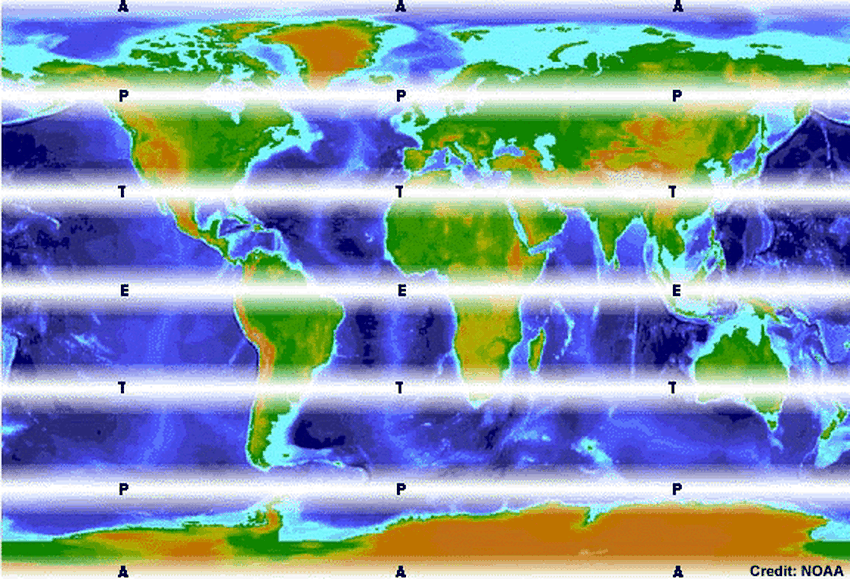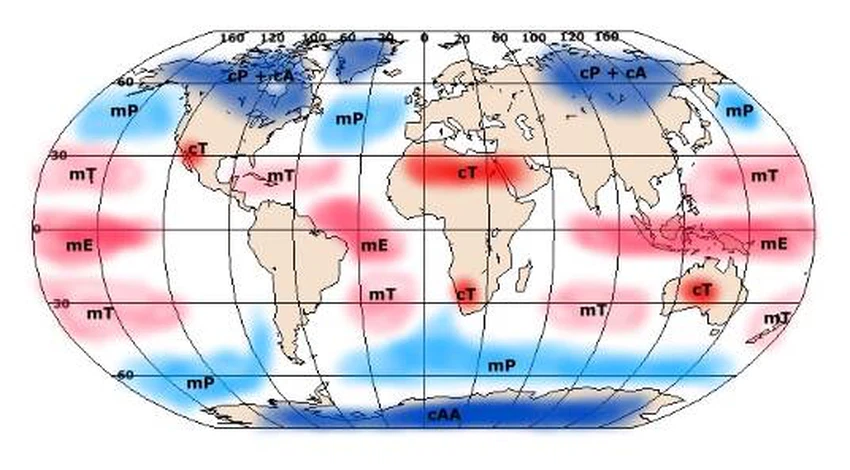Types of air masses
Arab Weather - Air mass is defined as a very large amount of air that is identical in temperature and humidity at any location on the horizontal level, and a single air mass can cover a large area extending to hundreds of thousands of square kilometers, and it can extend in the atmosphere up to a height of 16 km above The earth's surface.
How are air masses formed
Air masses are formed when air remains on large surfaces with uniform temperatures and humidity. This region is called the source of air mass, where low wind speeds allow the air to remain stationary for long enough to acquire the features of the source area, such as heat and humidity. When the wind moves the air masses, it moves with Its air characteristics from the source area to a new area, and when the air mass reaches a new area it may conflict with another air mass that has different temperature and humidity, which leads to the formation of a severe storm.
Classification of air masses
Meteorologists determine the air masses according to the location of their formation above the ground, there are different places in the characteristics above which different air masses form, namely:
-
Arctic and Antarctic region (Arctic): characterized by air masses , which consists of the Arctic as being very cold.
-
Tropical Zone (Tropical): tropical air masses are formed in the regions of low latitudes and are moderately warm.
-
Polar region (Polar): Arctic air masses are formed in regions of high latitudes and be cool
-
Tropical regions (Equatorial): develop tropical air masses near the equator, and be warm.

Air masses are also determined based on whether they form on land or over water, so that marine air masses that form over the water are moist, and continental air masses that form over land are dry, for example, the air mass that develops over northern Canada is called the mass The continental polar air mass is cold and dry, and the mass that forms over the Indian Ocean is called the tropical marine air mass and is warm and moist.
Types of air masses
There are several types of air masses, as each type of air mass produces a different weather that can affect the earth's climate for days or months, and these types are:
Label air masses on weather maps
Air masses are classified on weather maps using two or three letters. The lowercase letter describes the amount of moisture in the air mass: ( m ) for the wet sea, and ( c ) for the dry continent.
The capital letter describes the air mass temperature: ( E ) for the equatorial, ( T ) for the tropical, ( M ) for the monsoons, ( P ) for the pole, ( A ) for the Arctic or Antarctic, and ( S ) for the superior case - a state Unique with dry air that forms a strong downward motion in the atmosphere.
The lowercase letter describes the relationship between the air mass and the earth: the ( k ) indicates that an air mass is colder than the ground below it, while the letter ( w ) describes an air mass warmer than the ground below it.

Arabia Weather App
Download the app to receive weather notifications and more..



